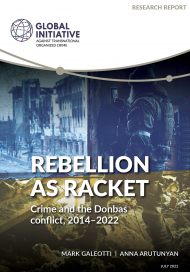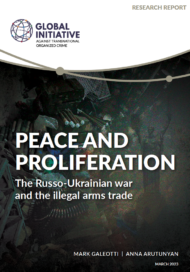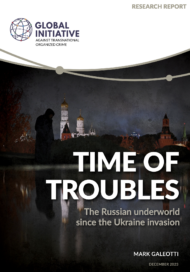Event Details
Where
Zoom webinar
Posted on 04 Nov 2024
Since 2012, Russia has strategically used criminal networks to evade sanctions, conduct intelligence, and destabilize the West. Under Putin’s “mobilization state,” illegal activities—from smuggling to cyberattacks—are seen as essential tools of warfare. This report delves into the Kremlin’s alarming integration of organized crime into statecraft.
Russia’s transition from a “conscription state” to a full “mobilization state”, after the 2022 invasion of Ukraine, has intensified the involvement of criminal groups in operations tied to sanctions-busting, cyber warfare, and intelligence. Organized crime networks provide Russia with access to restricted goods, such as advanced electronics for its military, and facilitate money laundering and illegal financial flows. Notably, Russian intelligence services have relied on criminal syndicates to supplement their espionage activities, including sabotage, cyberattacks, and assassinations.
The report also highlights Russia’s weaponization of migration, using smuggling networks to create political instability across Europe. Meanwhile, Putin’s regime has blurred the lines between state and criminal actors, using them as tools to evade international sanctions and expand Russian influence globally.
“Gangsters at War” reveals how Russian-based organized crime operates as a tool of Kremlin foreign policy, focusing not just on profits but on weakening geopolitical rivals. From sanctions evasion to destabilizing societies, criminal networks have become a key element in Russia’s geopolitical arsenal. The report calls for increased vigilance, international cooperation, and stronger countermeasures to address this growing threat to global stability.




